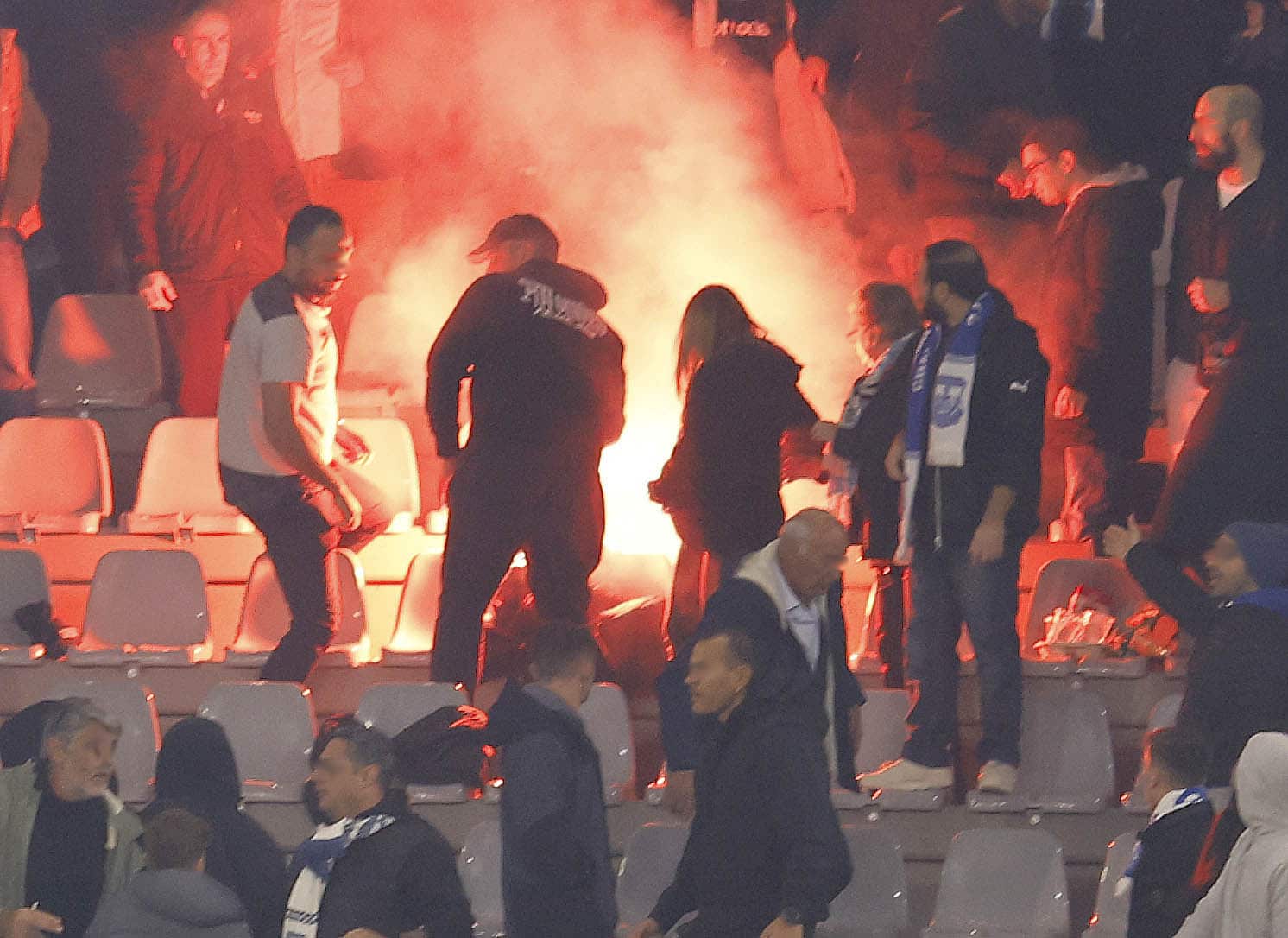Reactions to the suggestion of holding closed-door football matches may have been due to the particular wording of the proposal which will certainly undergo legal examination, Justice Minister Marios Hartsiotis said on Monday.
The minister sought to reassure critics that the measure would not constitute an overreach of power by the executive.
“We have no desire to create a police state and the measures [introduced] are not extreme. They are the minimum the state is obligated to undertake when public safety is threatened and lives are at risk,” Hartsiotis said.
“Had there been casualties the discussions would not even be happening but the state would be blamed for failing in its responsibilities,” he added.
Another matter is that of the organised football fans and the fact that many so-called fan clubs are housed in illegal premises, the minister said, noting that a slew of offences and crimes are committed under their guise.
The minister’s comments to CyBC came after a meeting with the Cyprus Football Association (CFA) on Friday where an agreement was reached to hold matches without away fans for a period of time.
Despite this, the minister noted that the agreement fell short of the government’s proposal to hold all matches behind closed doors until beefed up police measures could take complete effect.
The state then announced the intention to change legislation to give the council of ministers the power to designate certain matches as closed-door events.
“The state proposition hinges on the idea that in exceptional cases, where public safety is endangered, the decision to hold closed-door matches can be taken by the state executive and not rest solely in the hands of the referee,” Hartsiotis explained.
Political parties Disy, Akel and Edek, as well as the CFA all criticized the bill and expressed disagreement with the government’s move.
Noting that “clear and strict conditions” would have to be met for the process to kick in, Hartsiotis sought to do away with the public’s impression that such decisions would rest on deliberations by the entirety of the Cabinet.
“We envision a process whereby the minister of justice could take the decision based on a briefing from the chief of police–with the most up-to-date information on whether public safety was at risk,” Hartsiotis said.
The decision on whether or not to hold the match at all could not be taken by any body other than the CFA, the minister added.
The minister brought up the recent example of Greece, where in an effort to clamp down on sporting violence, in December all matches were declared closed-door for a period of two months.
“We have hit rock bottom,” the minister added, referring to a report of a child who risked being deafened by a flare landing near her in the latest incidents during a match on Wednesday, which was eventually cancelled, despite strong police presence.
The matter of illicit fan groups nonetheless being permitted to use football club logos and colours must also be dealt with and these groups must be brought under the legal auspices of their football company or club, Hatrsiotis said.
Head of the footballer’s association (Pasp), Spyros Neofytides said that while the measure to legitimise and regulate football fan groups was valid and necessary, the notion of matches without fans was misguided.
“We expected stricter checks and special riot police units to be created, as well as a deputy ministry of sport to be set up to tackle issues,” Neofytides said.
“Greece is the worst example of political interference in sports and has come close to being written off by the international football association (Fifa),” he noted.
Neofytides predicted the proposed introduction of legislation on closed-door matches to be determined by the state executive would cause “massive reactions” from Fifa as well as the European football association (Uefa).
“If the decision passes, which I doubt it will, it will be a huge embarrassment for Cyprus,” he said.







Click here to change your cookie preferences